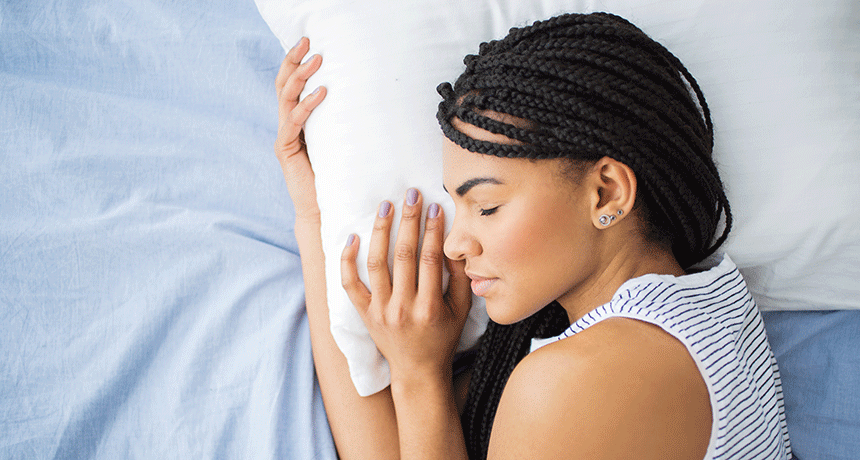chemical A substance formed from two or more atoms that unite (bond) in a fixed proportion and structure. For example, water is a chemical made when two hydrogen atoms bond to one oxygen atom. Its chemical formula is H2O. Chemical also can be an adjective to describe properties of materials that are the result of various reactions between different compounds.
circadian rhythm Biological functions such as body temperature and sleeping/waking times that operate on a roughly 24-hour cycle.
disrupt (n. disruption) To break apart something; interrupt the normal operation of something; or to throw the normal organization (or order) of something into disorder.
gland A cell, a group of cells or an organ that produces and discharges a substance (or “secretion”) for use elsewhere in the body or in a body cavity, or for elimination from the body.
hormone (in zoology and medicine) A chemical produced in a gland and then carried in the bloodstream to another part of the body. Hormones control many important body activities, such as growth. Hormones act by triggering or regulating chemical reactions in the body. (in botany) A chemical that serves as a signaling compound that tells cells of a plant when and how to develop, or when to grow old and die.
melatonin A hormone secreted in the evening by a structure in the brain. Melatonin tells the body that it is nearing time to sleep. It plays a key role in regulating circadian rhythms.
pineal gland A tiny area of the brain located deep in the center, right behind the thalamus. The pineal gland is shaped a bit like a pinecone, which is where it gets its name. It releases the hormone melatonin, which helps control when we sleep and wake up.

